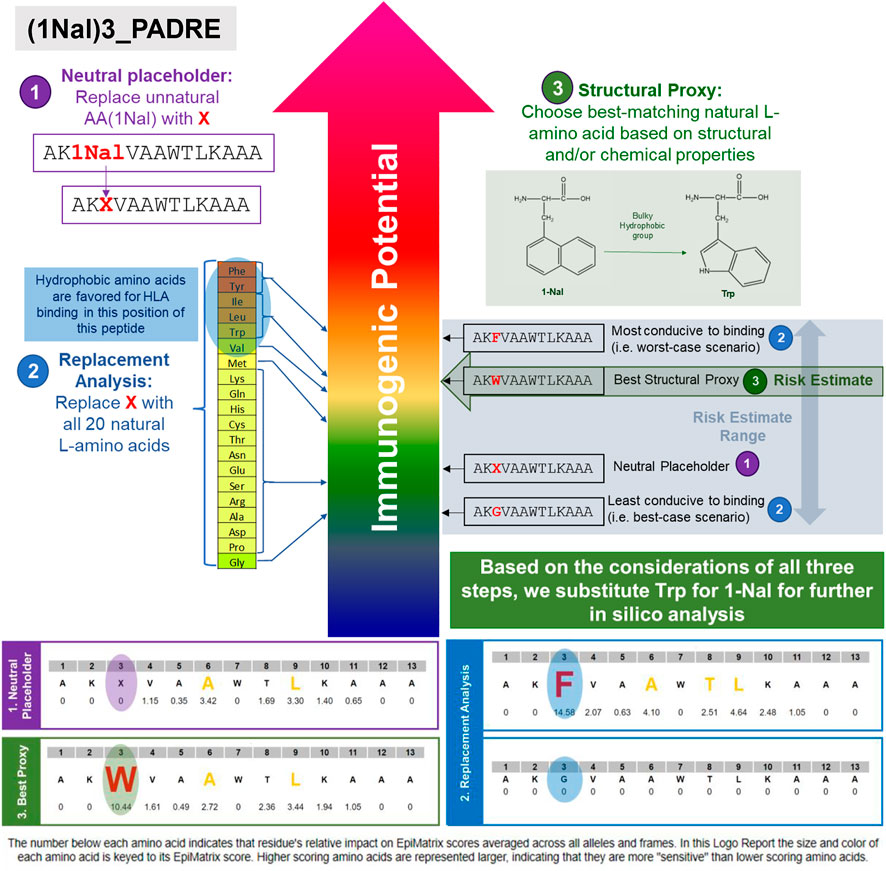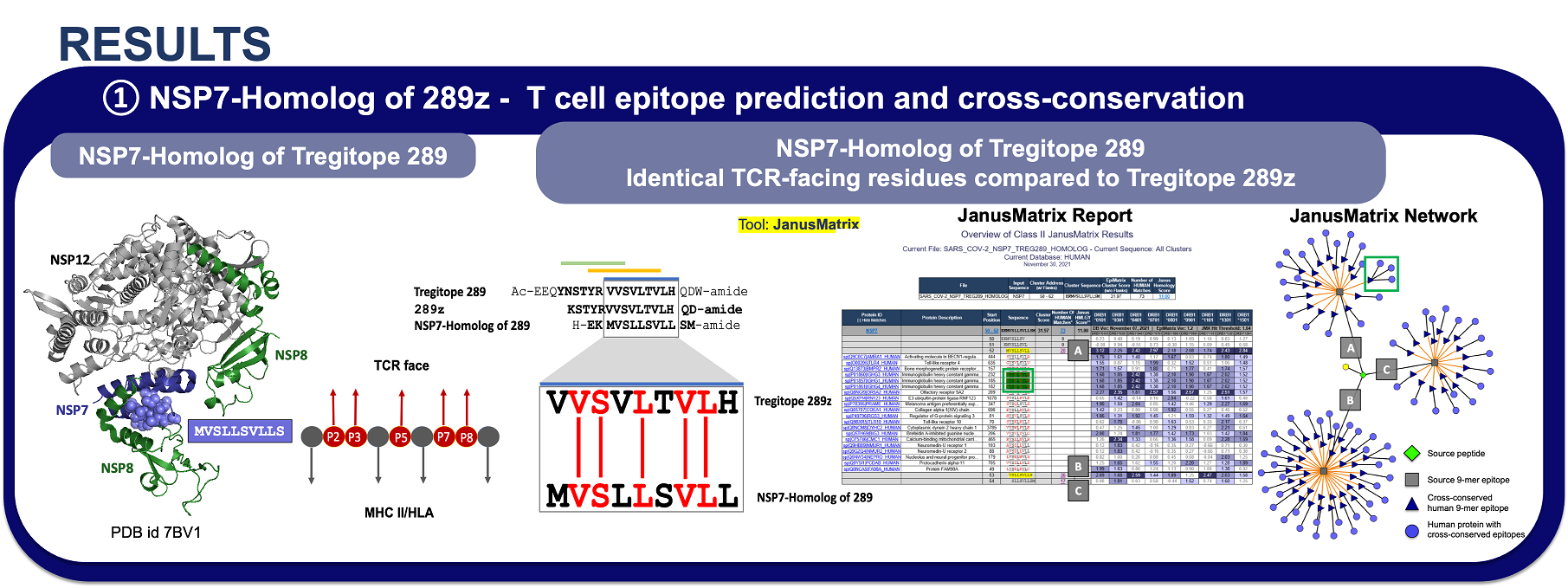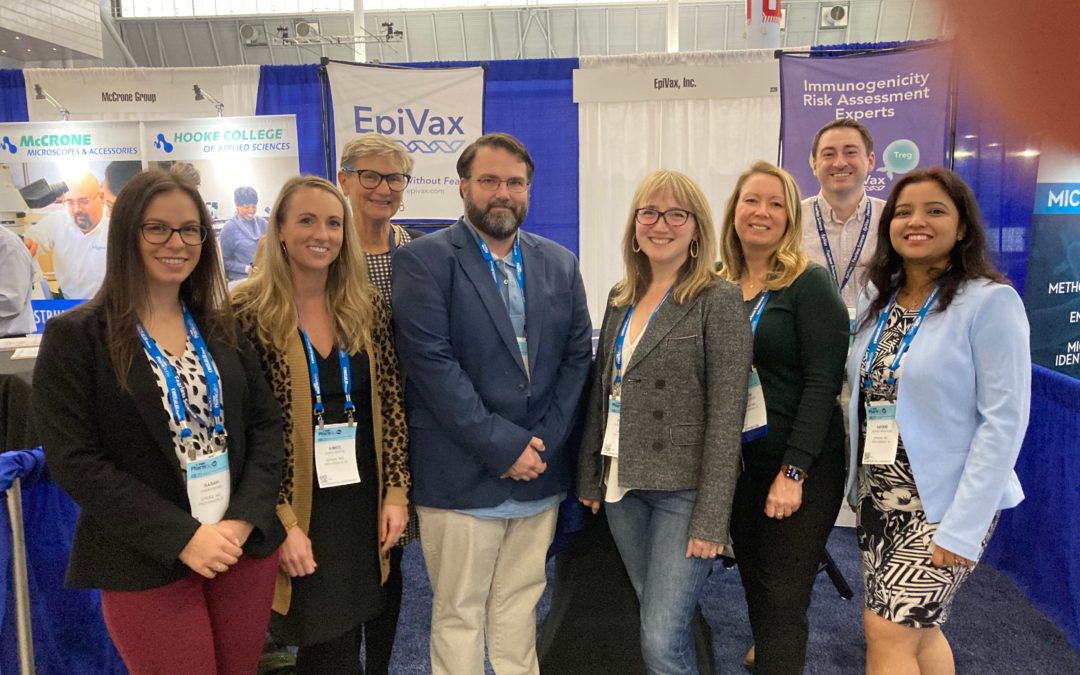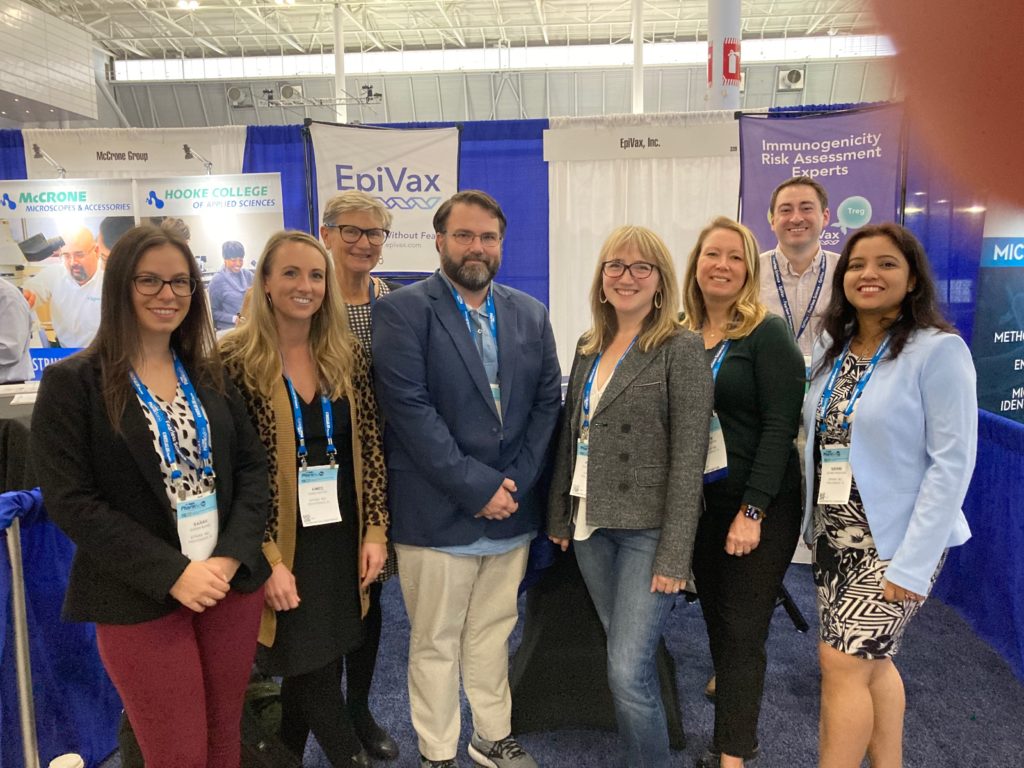The Epi-Team takes over PharmSci360 in Boston!
That’s right! The Epi-Team was out in force at the annual AAPS PharmSci 360 meeting this week in the beautiful and historic city of Boston. Special thanks to Amy Rosenberg for moderating the discussion at my talk on Deimmunization and Immune Tolerance Strategies for Novel Modalities! Additional thanks to Brian Roberts and Frances Terry for presenting posters on immunogenicity risk assessment for Host Cell Proteins (HCP’s) and Fusion Proteins.
And of course, we had a cocktail party afterwards! We teamed up with our friends at Boston Analytical to host a reception at Legal Seafoods in the Seaport District! We were fortunate enough to have a charming sunset view! Check out the photos from AAPS PharmSci 360 and our networking reception here!
Hot Off the Press: Aimee’s New Paper!
It’s unnaturally great ! Aimee Mattei (second from left above) has an exciting new paper published in Frontiers in Drug Discovery on Unnatural amino acids (UAA) which can be used in peptide therapeutics to improve the properties of the drug product. Her new paper describes an approach to using in silico tools to predict the immunogenic potential of UAA’s.

Aimee and the immuno-informatics team at EpiVax developed novel methods to estimate immunogenic risk for peptides containing UAA residues using existing in silico tools and provide some in vitro validation of the approach. We’re now incorporating common UAA into in silico immunogenicity prediction algorithms.
Basel and Biologics
Sarah Moniz and I will be going to the Festival of Biologics in Basel, Switzerland this November! It’s a great opportunity to learn about the latest innovative developments in biologics from a world-wide cast of distinguished leaders in industry and academia.
And, of course, I get to give a talk on T cells! more specifically, when to use computational vaccinology tools in the course of vaccine development. There are many opportunities – in antigen selection, antigen immuno-engineering, and also for assessment of vaccines-vs-outbreak strains (take a look at the EpiCC tool in the iVAX toolkit). For more information on vaccine design tools, please link to our iVAX website.
And then on to “The Venice of the North”
Next up, Katie and I will be flying to Amsterdam for EpiVax’s 2022 Immunogenicity & Tolerance Seminar! The Seminar has become a much-anticipated forum for sharing research and ideas it the Venn between immunogenicity and tolerance. Mark your calendars for November 18th – if you wish you can register now!
Giving Back for #GIVING Tuesday
November 29th is #GivingTuesday and we want to contribute to your favorite charity! Crazy huh? Well, actually no, giving back is a tradition at EpiVax. Over the past 20 years, a significant portion of EpiVax’s revenue has been allocated to charitable foundations, directly (through donated time by employees or by our employee-led charitable giving committee (VaxGivesBack) and by matching employee donations. Now, we want to help you and your neighborhood! Do you have a local organization you support? Send us your donation record before December 31 and EpiVax will match your donations to double your impact.
Tregs in COVID? Who’d a Thunk It?
Just kidding, of course. We think about Tregs quite a bit, so it was natural for us to question if the presence of Tregs in SARS-CoV-2 proteins could be an explanation for why the virus is often so good at escaping the attention of our immune systems.



